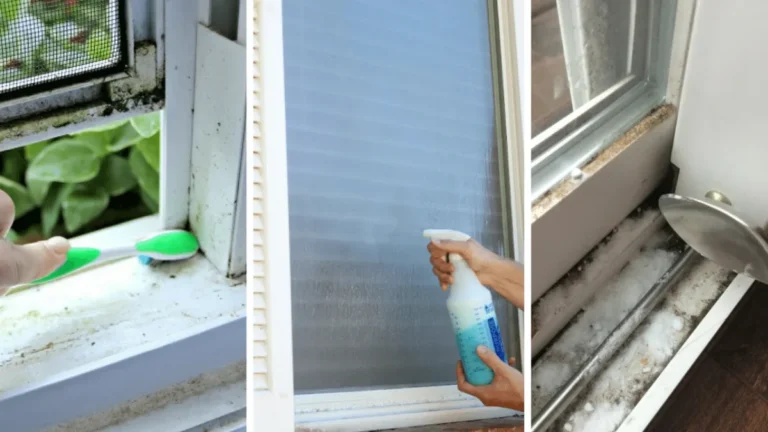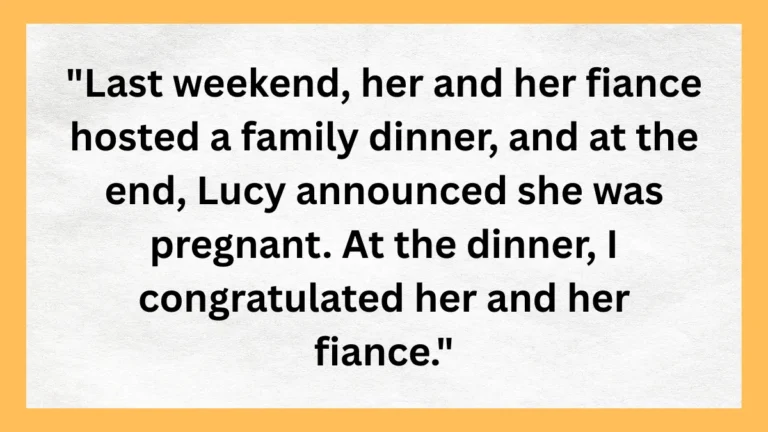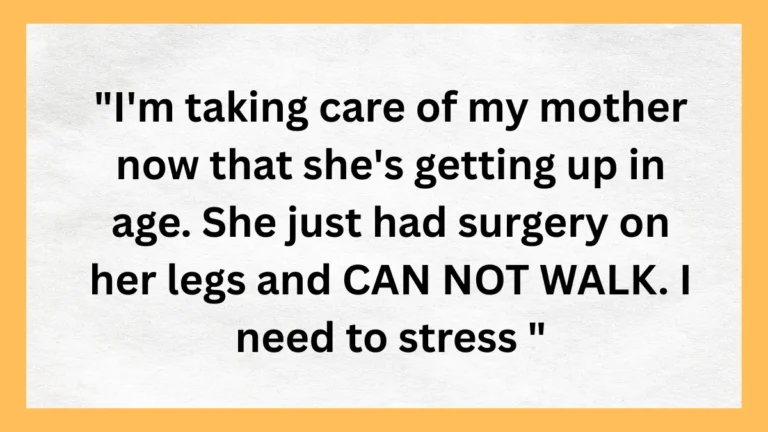Fair Pay or Manipulation? The Truth About Pet Sitting Boundaries
A seasoned house and pet sitter accepted a job caring for an aging, ailing cat—expecting simple duties and fair compensation. But the role quickly mutated. For a mere $2.50 nightly increase, she was suddenly expected to personally distribute Halloween candy instead of leaving it out, run the vacuum, and dust furniture—despite the homeowner already employing a cleaning service. What began as compassionate pet care transformed into unpaid domestic labor.
The breaking point came when she was asked to administer the cat’s blood pressure medication orally a risky task that, if mishandled, could cause serious harm. When she adjusted her rates to reflect the emotional strain and heightened responsibilities, the client snapped—accusing her of manipulation. Now, the sitter is left questioning: was it wrong to expect fair pay for work that clearly exceeded the original arrangement?
She’d been house and cat sitting for the same woman for months.

Her main job was caring for a sick, elderly cat, but the client kept piling on extra chores.

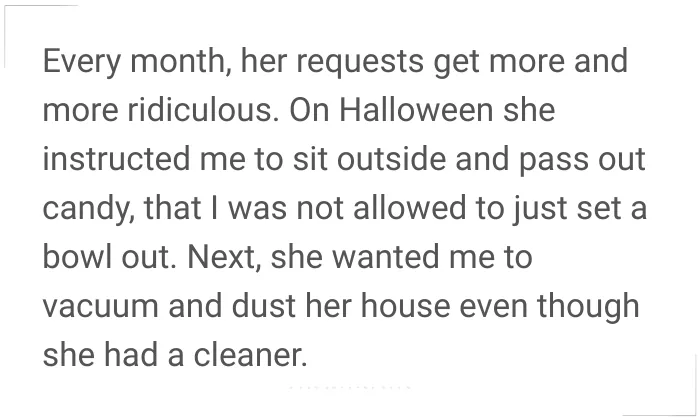




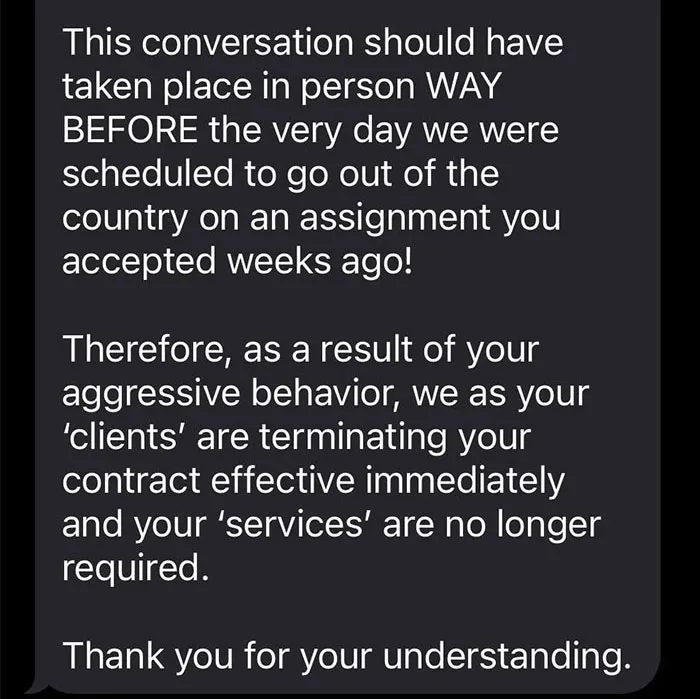
Fair Pay and Firm Boundaries in Pet Sitting
Stories like this shed light on the real challenges of balancing fair pay with healthy boundaries in freelance and service jobs—especially in roles like pet and house sitting. Let’s take a closer look.
Why Higher Pay Is Justified for Bigger Responsibilities
When your job suddenly includes more demanding tasks—like caring for an elderly or sick pet—it’s only natural to reassess your rates. Administering medication isn’t just a kind gesture; it requires skill, timing, and sometimes even dealing with side effects. As PetMD points out, giving medication incorrectly can seriously harm the animal and place a huge emotional and legal burden on the sitter. So yes, that extra effort should come with extra compensation.
In this case, the sitter increased her rates—which, let’s be honest, is completely reasonable. Pet sitters commonly charge anywhere from $25 to $75 per night, depending on the complexity of the job and location. Add in specialized tasks like administering meds, and the rate can go even higher. Her price hike wasn’t just fair—it might still have been a bargain for the level of care being provided.
Boundaries Aren’t Just Helpful—They’re Necessary
It’s one thing to feed the cat and take out the trash. It’s another to be asked to hand out Halloween candy or take on unrelated chores. At that point, it’s less about care and more about being taken advantage of. In freelance and service-based roles, drawing clear lines between professional and personal obligations is essential. Without them, burnout is inevitable.
According to Forbes, when clients ignore those lines, it’s usually a test—how much will you give before you push back? That kind of overreach turns into manipulation and creates an unhealthy dynamic.
So no, the sitter wasn’t being “difficult” or “dramatic” for raising her rates. She was simply valuing her time and labor. What some call manipulation is, in reality, just good business sense.
Raising Rates Isn’t Manipulation. It’s Professionalism.
Manipulation involves deceit or sneaky behavior to gain an unfair advantage. But this sitter? She was upfront. She communicated her reasons clearly: increased workload, specialized care, and added responsibilities. That’s not coercion—that’s transparency.
At the end of the day, what’s really happening here isn’t some underhanded scheme. It’s a woman asserting her worth in a job that demands time, energy, and care. And if that makes some clients uncomfortable, maybe it’s time they reevaluate what fair treatment really looks like.

